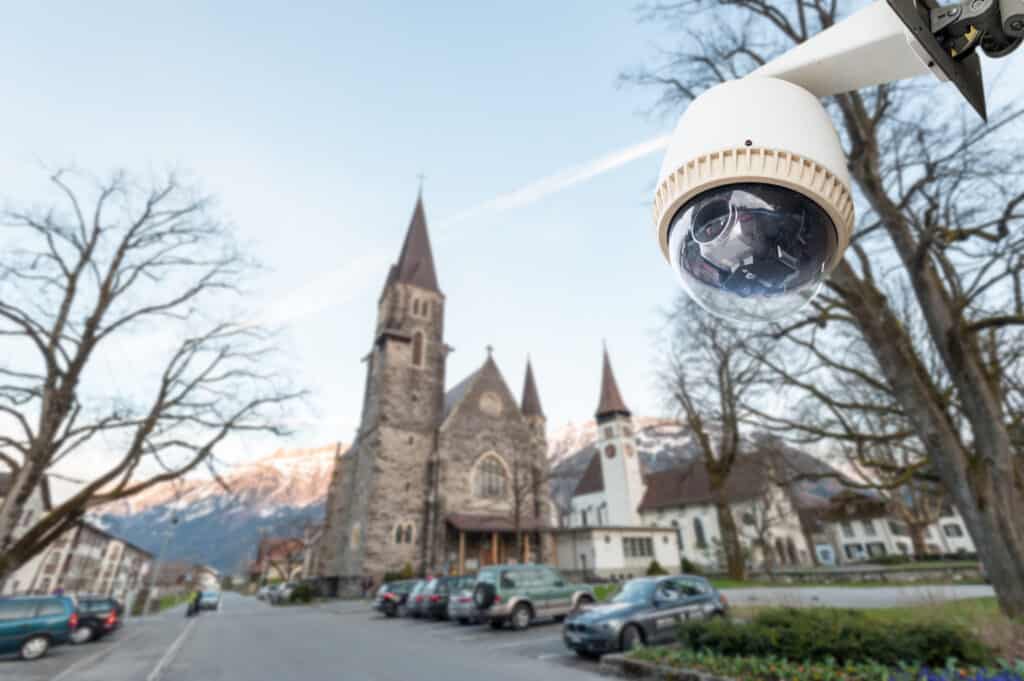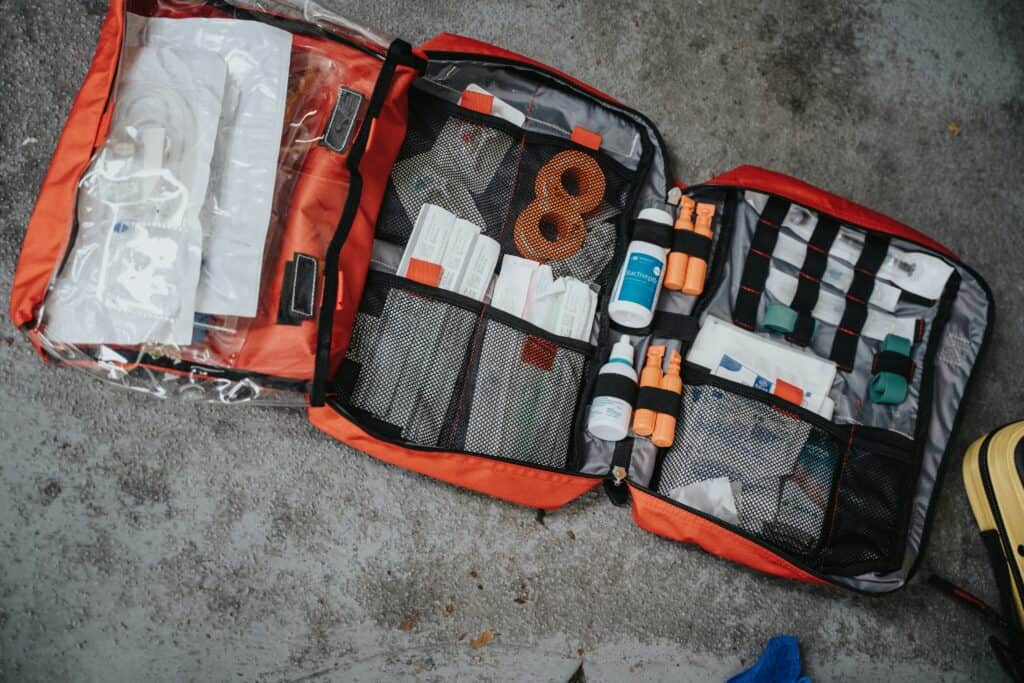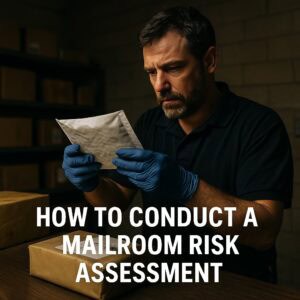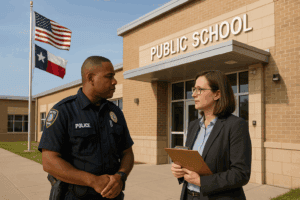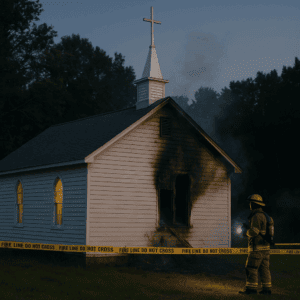Why Do Churches Need Security?
We live in a dangerous world. There’s no way to sugarcoat it. On that note, it’s safe to say it’s way more dangerous for those who are unprepared.
When most people think of the need for church security, they think of church shootings. This is especially true since the Columbine shooting popularized the active shooter trend.
Through CISA, which falls under the Department of Homeland Security, we have some insight into attacks on houses of worship. This data (2009-2019) helps put things into perspective.

Looking at stand-alone data, I have noticed the numbers have declined for 2020 and 2021. To me, this has a direct correlation to the pandemic and subsequent lockdowns and not security-related efforts.
Many places of worship were closed during these times, and by default, there was less opportunity for these tragic events.
While these types of horrific events do occur and have devastating impacts, there are many more (less impactful) events that are dealt with on a much more regular basis.
We need to make sure we are not overlooking “internal” emergencies while we are just focusing on the threat of an active shooter.
Churches are vulnerable places

Due to the nature of how churches operate, they are inherently vulnerable. With some churches offering services such as child care, daycare, schools, counseling centers, food pantries, etc., they are at additional risk.
This is in addition to the risk associated with unsecured parking lots, open-door policies, and lack of security design features.
For example, a 44-year-old was arrested for kidnapping a 2-year-old from a church nursery at Riverview Baptist Church in Ripplemean, VA.
She had several previous attempts in the preceding days where she visited church nurseries and provided a made-up child name to try to get a child.
She was turned away when no children matched those names. However, she was ultimately successful.
There are many different types of church emergencies
When it comes to the different types of emergencies and what can occur, the list can be quite lengthy. However, in general, we can look at possible issues related to these categories:
Medical Emergencies
Medical emergencies at church can include issues such as heart attacks, seizures, cuts, scrapes, etc.
As a church, you need to be prepared to handle these types of incidents. They are common and something you will face if you have not yet.
Weather or Other Natural Emergencies
Weather emergencies can come in a lot of different forms. Think of things like tornadoes, severe thunderstorms, wind storms, flooding, fire, etc.
Knowing when and where to evacuate people and what to do in these emergencies is imperative.
Arson
As part of our business model, we monitor and record data related to all types of emergencies that affect houses of worship.
One of the things that is at the top of the list are arson attacks against these particular places.
Most people do not think of arson is a potential threat much less how often it occurs.
Knowing what to look for and how to respond to these events is critical. Make sure you have plans in place to address these specific situation.
Domestic/Custodial situations
Domestic and/or custodial situations are additional issues that are not that uncommon. Unfortunately, these incidents can often include children who are victims of circumstance.
Knowing how to deescalate and when to escalate when needed is imperative.
Oftentimes, church security members will have to deal with these situations until first responders arrive on the scene.
Theft
We have had a series of thefts of catalytic converter thefts in the area lately.
We’ve also been informed by some of the churches we work with that vehicle break-ins during service have become an increasing issue.
These are things that cannot become overlooked. Once the cycle begins, something needs to be done to break it.
Threats
Threats can come in many forms such as by phone, written conveyance, in-person, or even digital.
How you deal with each of these can vary greatly according to the method and the particulars of the threat.
Plans have to be in place and people have to be trained to deal with these incidents appropriately.
Do you have to begin by identifying who may potentially receive these threats.
Once a comprehensive list is put together, you need to conduct training that is relevant to the various types of threats that may come in.
Trends should be monitored and training should be updated regularly to reflect what is currently happening.
Disturbance
Think of issues such as a person yelling at the pastor during service or just generic interference with church activity.
How do you handle these issues? What is the proper way to address the activities that surround these behaviors?
Act of violence
Active shooters as mentioned above are rare but do happen. According to DHS, the average incident lasts around 6 minutes. This is a long time to try to endure one of these events.
There are many, many factors that influence the response time of first responders. You have to be prepared to address issues and mitigate risks until they arrive.
Oftentimes, these types of incidents may be over prior to first responder intervention. But you and your team due to bridge that gap came literally mean life and death.
Physical altercation
Sound of gunfire
What do you do when you hear the sound of gunfire?
What do you do if you hear something that sounds like gunfire but you are not sure?
These incidents can quickly create panic and mass hysteria.
Pre-planning is crucial in mitigating the risk of a legitimate active killer event or the danger of having a group of panicked worshipers who are trying to evacuate a facility for no good reason.
Do you have the tools you need?
The tools and equipment we carry are a critical component of being able to do our job effectively.
With that in mind, we need to be deliberate about the selections we make.
But, before we get to the tools and equipment we may need, there are a few prerequisites we need to cover.
Mindset and Skills come before gear.
However, you need all three to have a robust response.
It is important to remember we are not trying to turn ourselves into some super-spy, mall ninja, police officer wannabe.
We are simply trying to carry the tools we need to do our assigned tasks effectively.
Also, there are specific gear requirements for each assignment.
The security team, medical team, greeters, parking lot attendants, etc., all have gear that fits the job they are doing.
But, it’s important to remember that they all have to be able to work as a cohesive unit in the end.
Remember, if carrying this gear forces you to do it in a way that is overt and causing issues, you need to reassess what you’re doing and how you’re doing it.
However, if you spend the proper amount of time making good choices and training with those choices, you will be able to increase your value on the team.
Again, all of the gear in the world is worthless if you don’t have the mindset and skills to back it up.
Training is the number one thing that you can do to increase your effectiveness in this area.
Suspicious Circumstances – There is nothing wrong with looking for and identifying suspicious activity within the church. This does not fall into the unwelcoming category.
A security team can help reduce the impact of emergency situations at church
A security team plays a crucial role in reducing the impact of emergency situations at the church by providing physical protection and ensuring the safety of everyone involved. Here are some specific ways in which a security team can contribute:
- Physical protection: The presence of trained security personnel can act as a deterrent to potential threats and provide a sense of security to the staff, volunteers, and attendees. They can intervene in case of disturbances or acts of violence, mitigating harm and maintaining order.
- Staff, volunteers, and attendee safety: The security team is responsible for ensuring the safety of not only the church staff and volunteers but also the attendees. They can implement safety protocols, conduct regular security assessments, and respond swiftly in emergency situations.
- General safety measures: Security team members can enforce safety measures such as monitoring access points, maintaining vigilance over the premises, and identifying and addressing potential security vulnerabilities. They can also collaborate with local law enforcement agencies to enhance overall safety.
- Crowd control: During crowded events or services, a security team can manage crowd flow, prevent overcrowding, and ensure a smooth and safe experience for attendees. They can guide people to designated areas and assist with maintaining order and discipline.
- Checking locked doors: A vital responsibility of the security team is to check and secure all entrances, exits, and locked doors. By regularly inspecting these areas, they can prevent unauthorized access and respond promptly in case of any breach or suspicious activity.
- Assisting evacuations: In the event of an emergency requiring evacuation, such as a fire or natural disaster, the security team plays a critical role in guiding people to safety. They can direct evacuation routes, provide instructions, and assist those who may need support, ensuring a swift and organized evacuation process.
By fulfilling these responsibilities, a well-trained and dedicated security team can help reduce the impact of emergency situations and create a safer environment for everyone within the church community.
Skilled security team members are often members of the church
Churches are made up of people from all walks of life. As a result, there is usually a good cross-section of security/safety-minded individuals who are members.
When we look at who may or may not be qualified for a church security team, there are a few professions that offer a good place to start.
- Law enforcement officers (local, state, and federal)
- Both active and retired
- Firefighters
- Doctors
- Nurses
- Paramedics
- EMT’s
Use their knowledge and experience to increase safety and security.
Keep in mind, just because they are on the security (safety) team doesn’t necessarily mean they are walking around on parking lot patrol.
There are a lot of different functions within safety and security, especially when we are looking at a layered approach. These volunteers can be dispersed onto the following teams and more:
- Staff
- Parking
- Greeters
- Medical
- Ushers
- Security
- Etc.
Another benefit of having professionals make up some of these roles is that they’ve typically experienced emergency situations.
This can sometimes give them a unique perspective on knowing how and when to escalate situations.
Remember, I’m not saying a church security team should only be made up of people with the backgrounds mentioned above.
There are lots of qualified folks from all walks who are excellent team members. They need to be utilized as well.
People expect a safe and secure church environment
When people attend church, they expect an environment that is safe and secure. This is pretty much the same with anyone who is visiting a public place.
However, churches can be a place where those who are especially vulnerable come to visit. There may be issues or circumstances in their lives they are seeking help with.
When they show up to church they should see it as a place that can offer the safety and security they are seeking.
A security team can help increase the safety and security of the church in a physical sense, but also from a mental standpoint as well.
Knowing there are people who are dedicating their time and services to improve security can help put people at ease.
Can be a neutral party to de-escalate issues outside of the church
A security team can also serve as a neutral party to de-escalate issues that occur outside of the church.
Their role extends beyond providing physical protection and responding to emergencies within the church building.
They can act as mediators or peacekeepers in situations involving conflicts or disturbances that may arise.
By establishing positive relationships, a security team can work to address and de-escalate issues effectively.
Their presence and expertise can help defuse tense situations, prevent escalation, and promote a peaceful resolution.
When conflicts arise between individuals, the security team can intervene calmly and impartially.
Their training in conflict resolution techniques and their ability to remain composed under pressure enables them to engage in dialogue, listen to different perspectives, and work towards finding common ground.
Being a neutral party, the security team can provide a sense of trust and reliability to both the church community and the local community at large.
Their efforts to de-escalate issues contribute to fostering positive relationships, promoting harmony, and ensuring that the church remains a respected and valued institution within the community.
In summary, a security team’s role extends beyond the physical security of the church building.
They can serve as a neutral party to de-escalate conflicts and promote peace for the entirety of the church premises.
By leveraging their conflict resolution skills they contribute to maintaining a positive reputation for the church and nurturing a safe and harmonious environment for everyone involved.
Conclusion
In conclusion, the need for church security arises from the inherent vulnerabilities churches face and the responsibility to ensure the safety and well-being of their staff, volunteers, and attendees.
While the threat of active shooters is a concern, there are various other emergencies and risks that churches must be prepared to handle.
From medical emergencies to weather-related incidents, arson attacks, domestic situations, thefts, threats, disturbances, and acts of violence, a comprehensive security strategy is essential.
Having a dedicated security team that consists of skilled individuals from diverse backgrounds, including law enforcement officers, firefighters, medical professionals, and other safety-minded individuals, enhances the church’s ability to respond effectively to emergencies.
They can provide physical protection, maintain general safety, assist with crowd control, check locked doors, and support evacuations when necessary.
Moreover, a security team creates a sense of security and reassurance for churchgoers, making the church a welcoming and safe environment.
By prioritizing mindset, skills, and training over gear, security team members can maximize their effectiveness in mitigating risks and responding to emergencies.
Their vigilance in identifying suspicious activity and their role as a neutral party in escalating issues outside the church contribute to maintaining a secure environment.
Ultimately, the presence of a well-prepared and dedicated security team helps meet the expectations of attendees who seek a safe and secure place for worship and support.
With their commitment to safety, the security team plays a vital role in reducing the impact of emergencies and ensuring that the church remains a place of solace, comfort, and spiritual growth for all.

